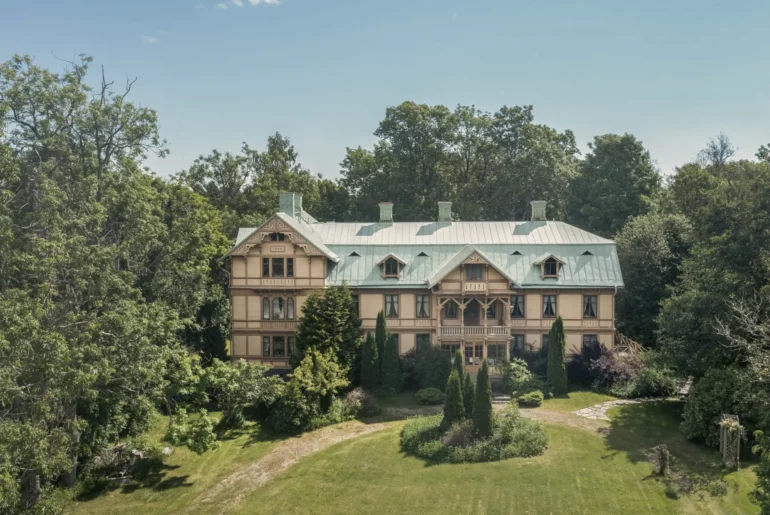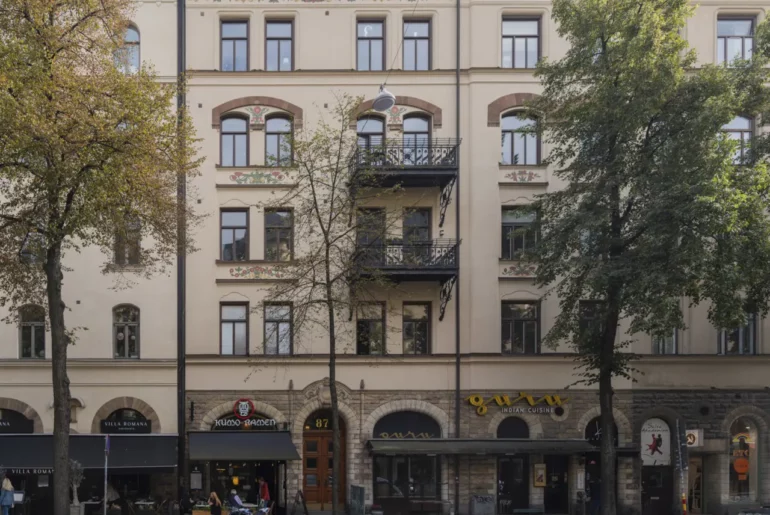In the suburbs of Stockholm, there’s an interesting area filled with wooden villas. The first houses appeared there at the beginning of the last century. And now, in this residential area, there are about 150 estates, many of which have been owned by the same families for over half a century. Time goes by, everything around changes, but life in these houses remains unchanged—it’s as if someone pressed pause.
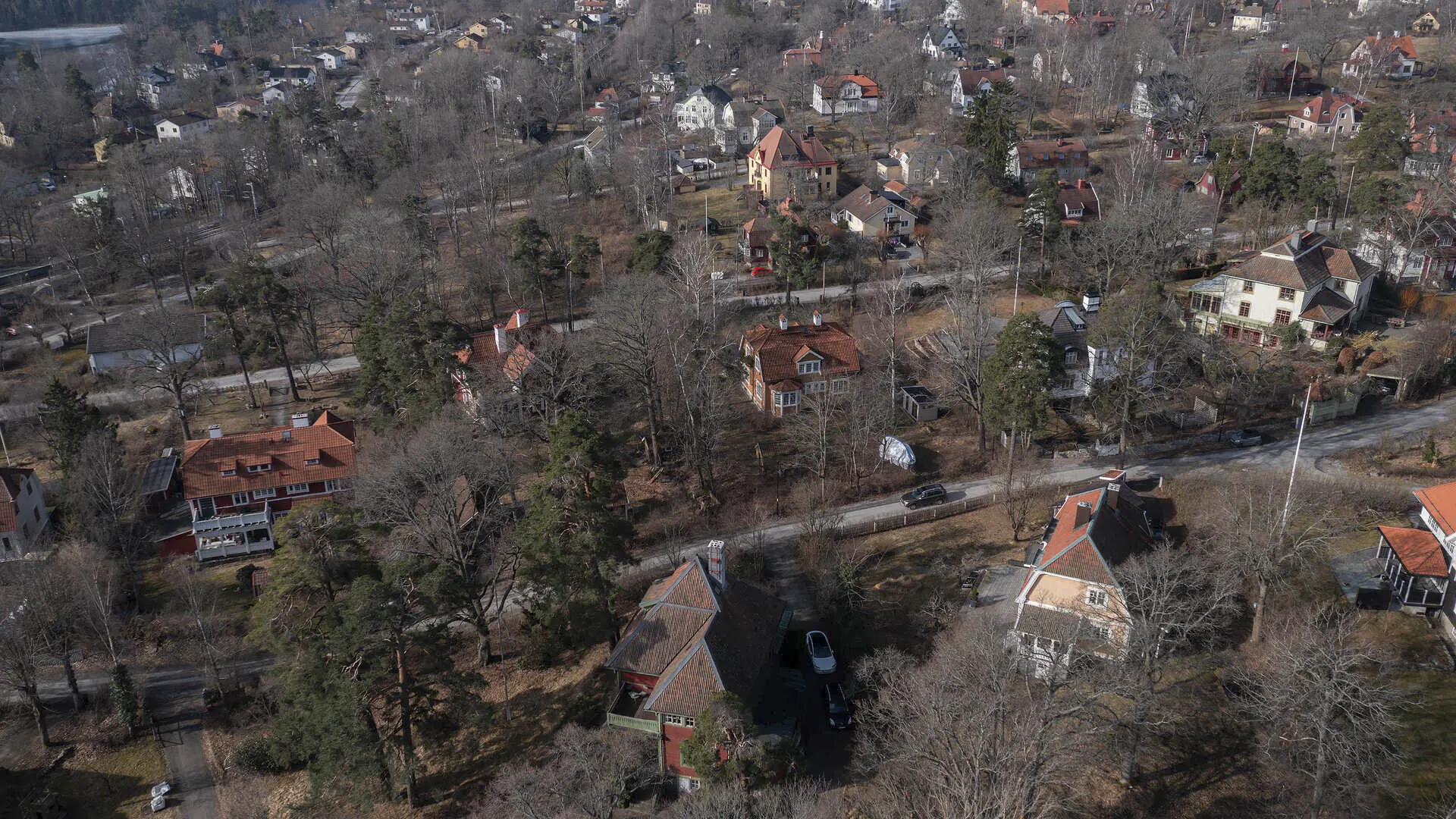
This is how the Storängen district, where these villas are located, looks from a bird’s eye view.
I’ve long wanted to see what these villas look like inside. And I found photos of one of the houses built in 1906. The atmosphere impressed me. There’s no expensive renovation, fancy antique furniture, or other symbols of wealth (although the villas here cost a fortune). Instead, there’s a family library, grandmother’s furniture, and other old items inherited through generations.
It seems incredible that people consciously live in such conditions, preserving their family history. And they don’t strive to surround themselves with new things.
A tiny clarification. For many, the word “villa” is associated with luxurious housing somewhere by the sea. But in Scandinavian countries, villas usually refer to family estates.
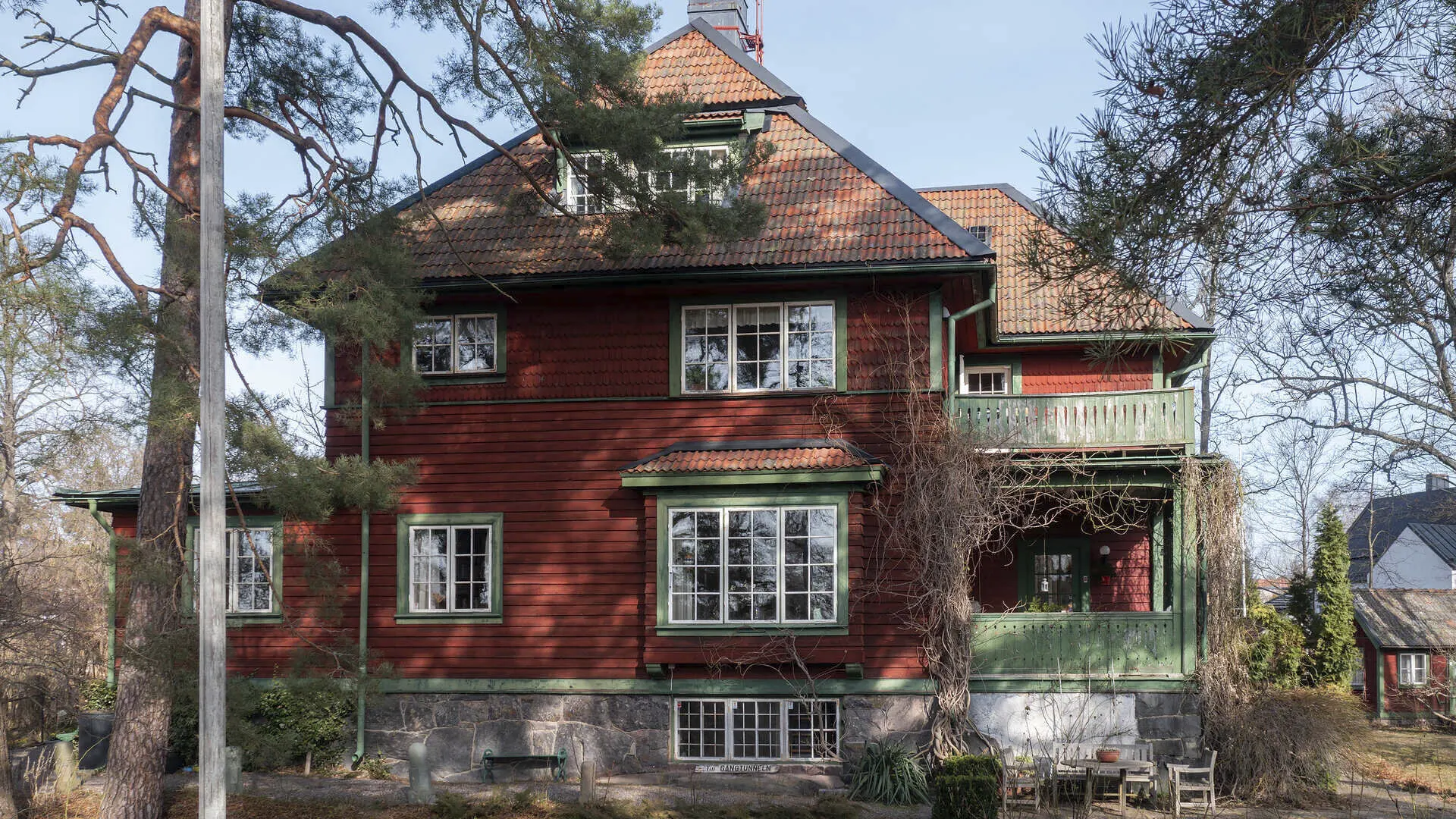
This is what the villa we’ll virtually visit today looks like.
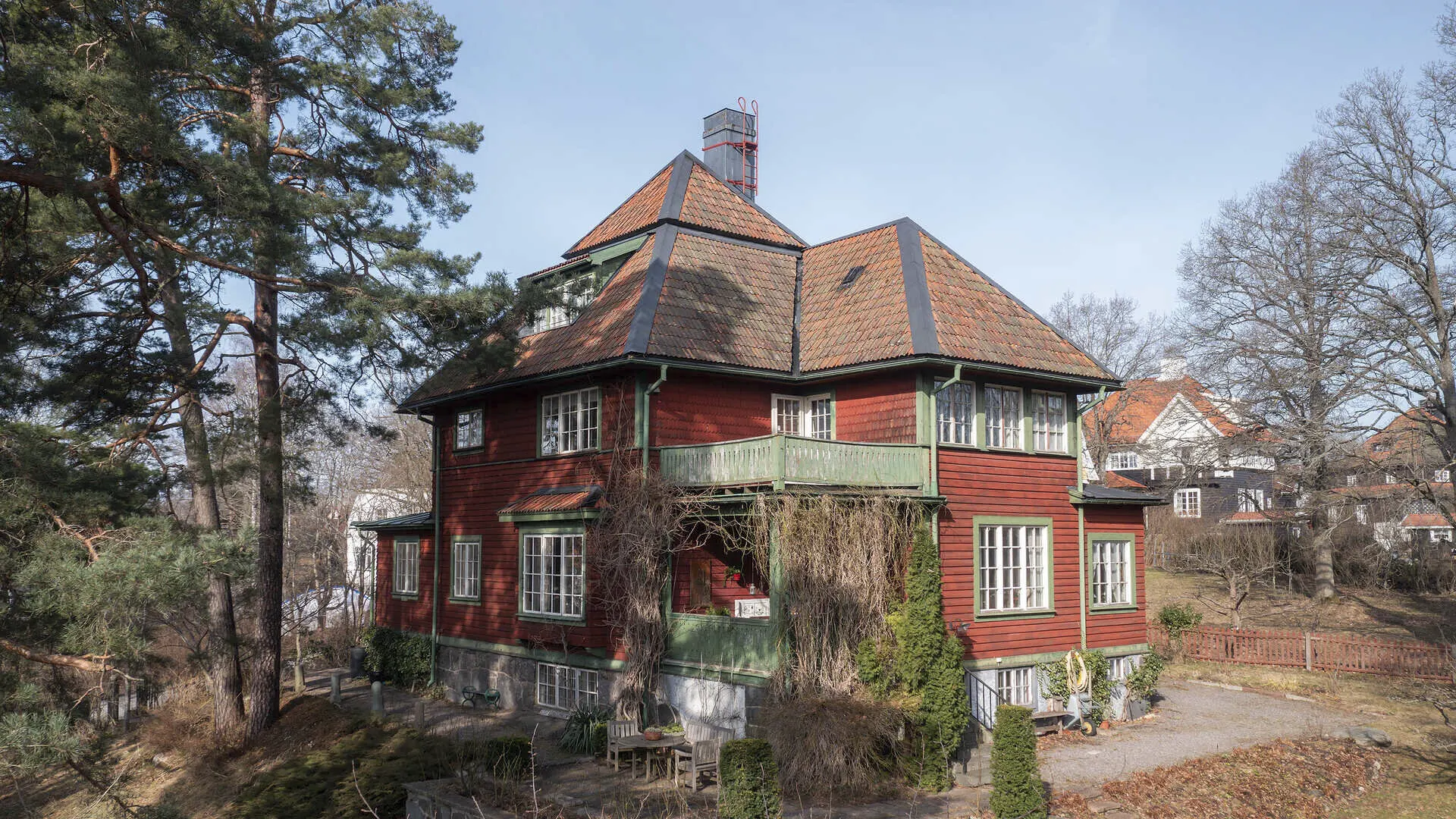
The house is huge—282 square meters, 10 bedrooms. And all of this belongs to one family (though representatives of several generations).
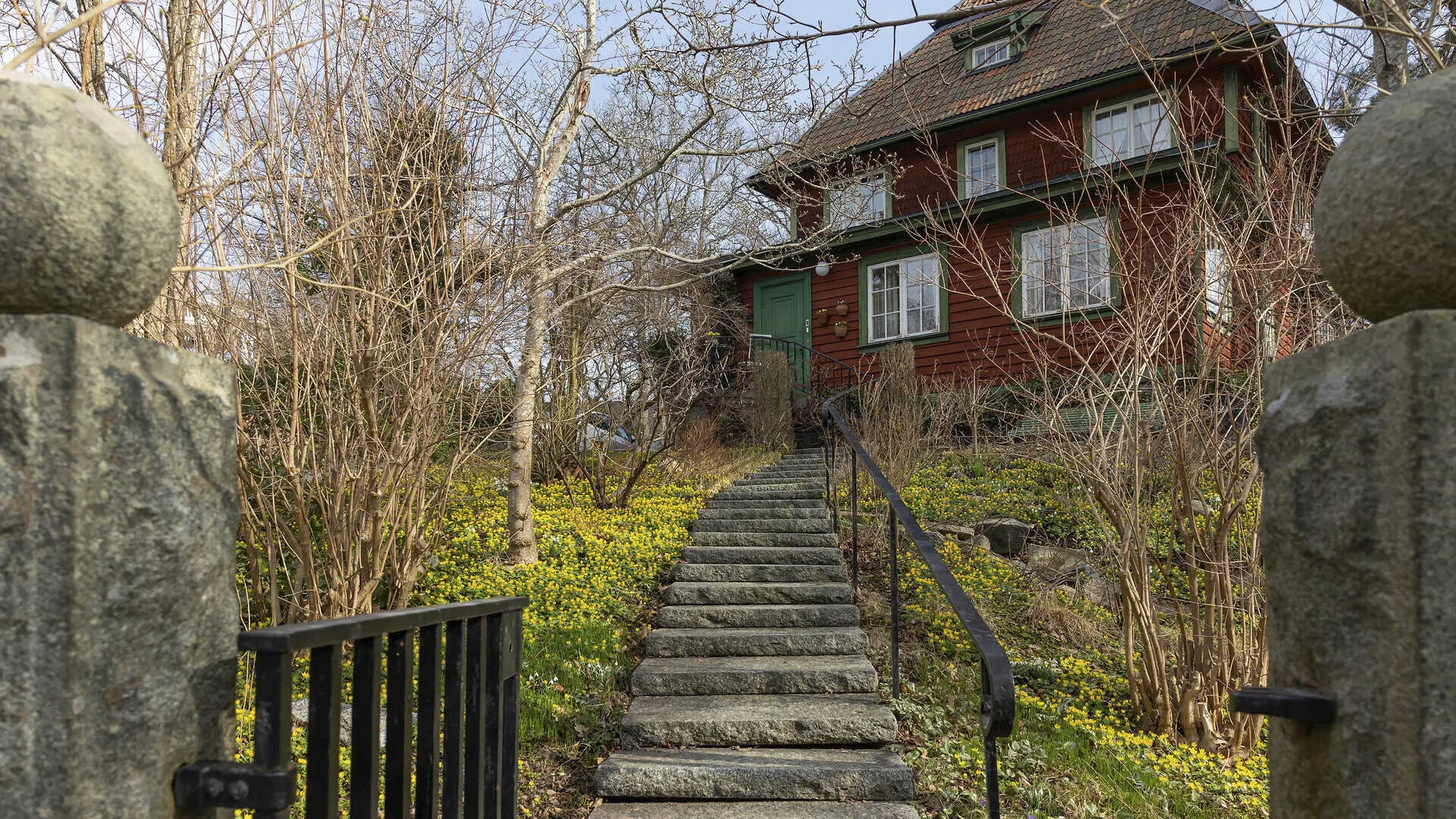
This villa is over a hundred years old. And it’s still in excellent condition. An interesting fact: the first owner of the house was the famous Swedish engineer Jonas Hesselman. He lived here until the day of his death in 1957.
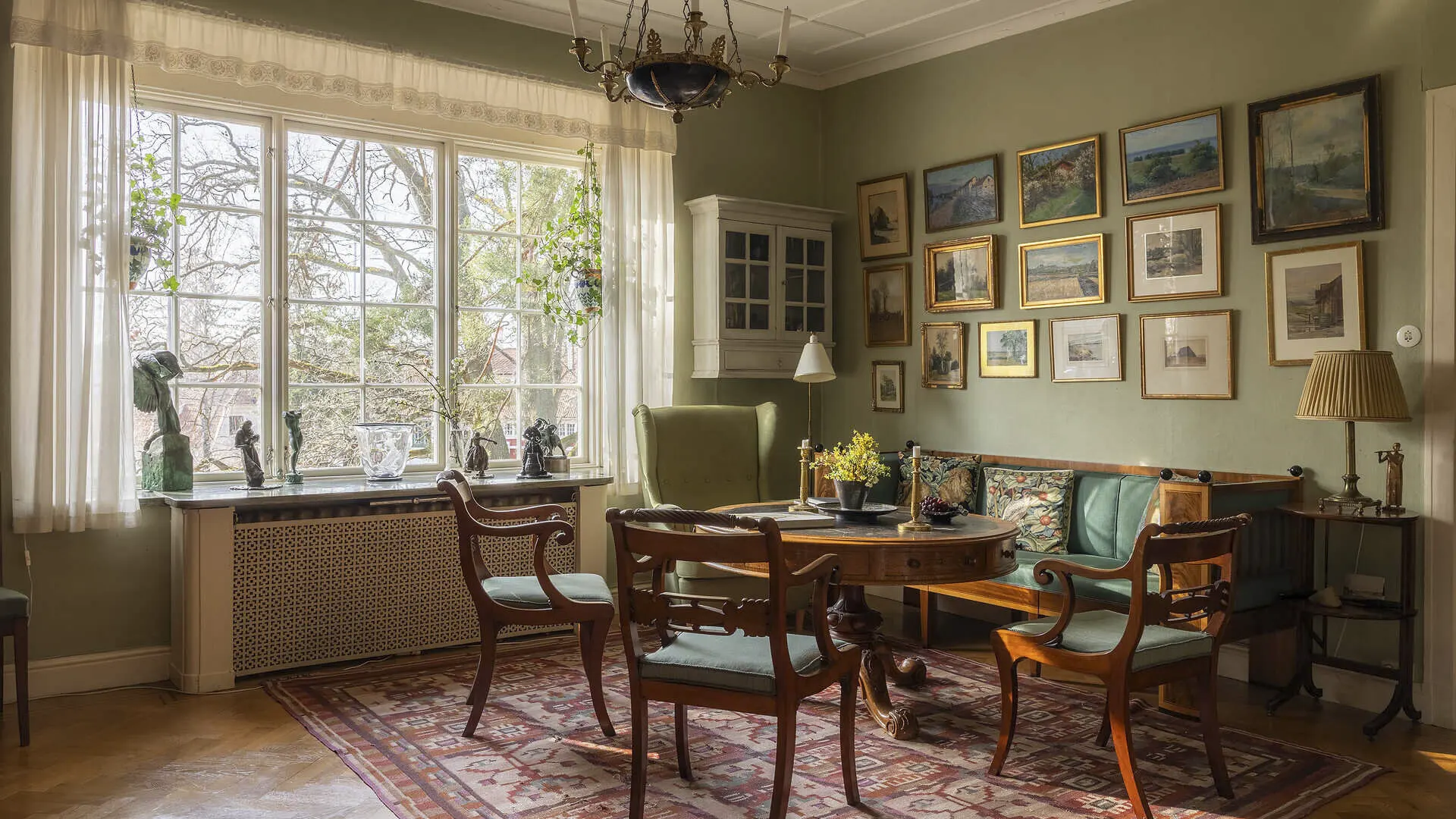
The ground floor houses the so-called “public” areas—living room, dining room, kitchen, library. The bedrooms are on the second floor.
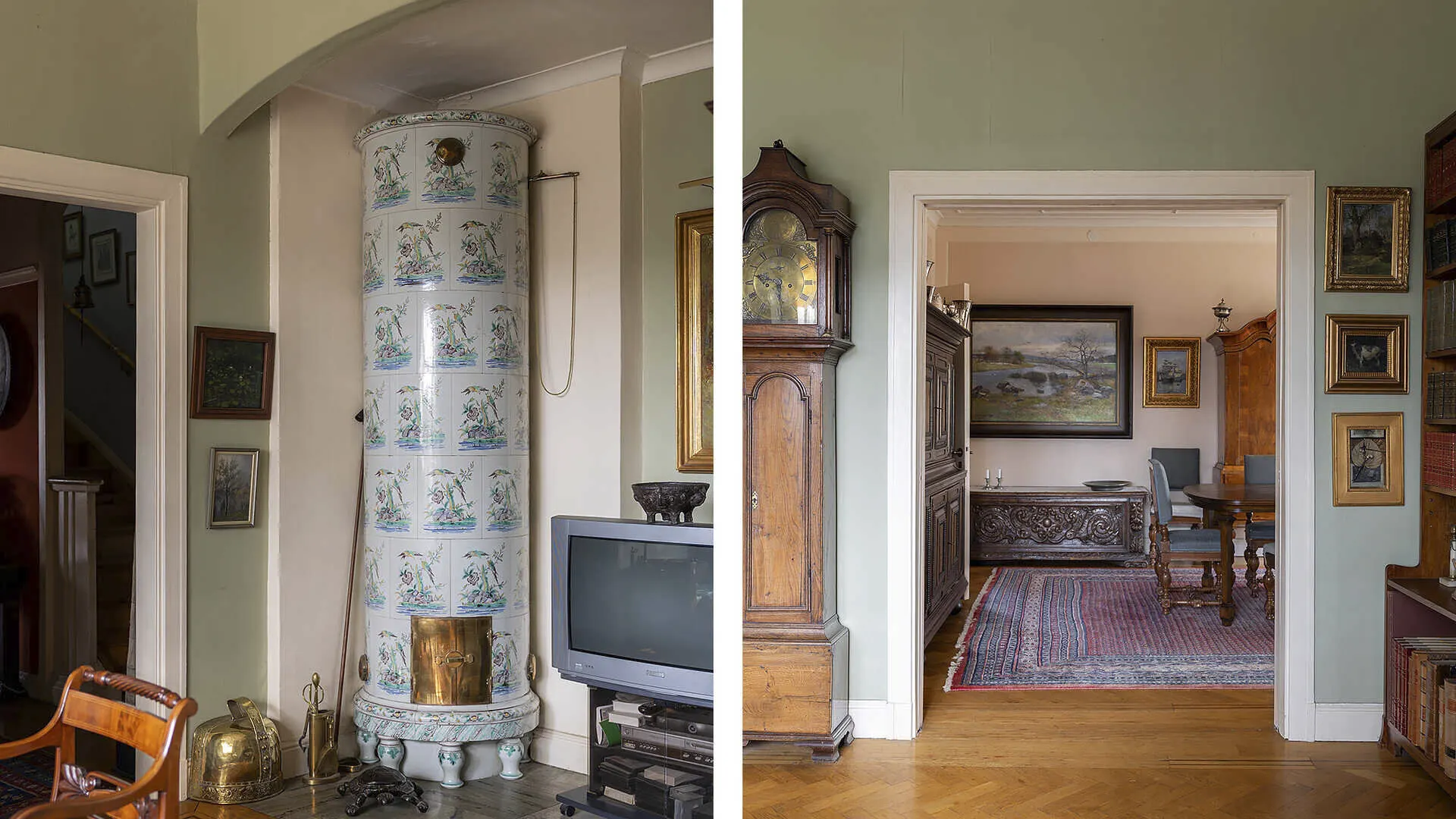
The house has retained many original details that were here during the time of the first owner, Hesselman. For example, tiled stoves, parquet, and marble floors in the hallway.
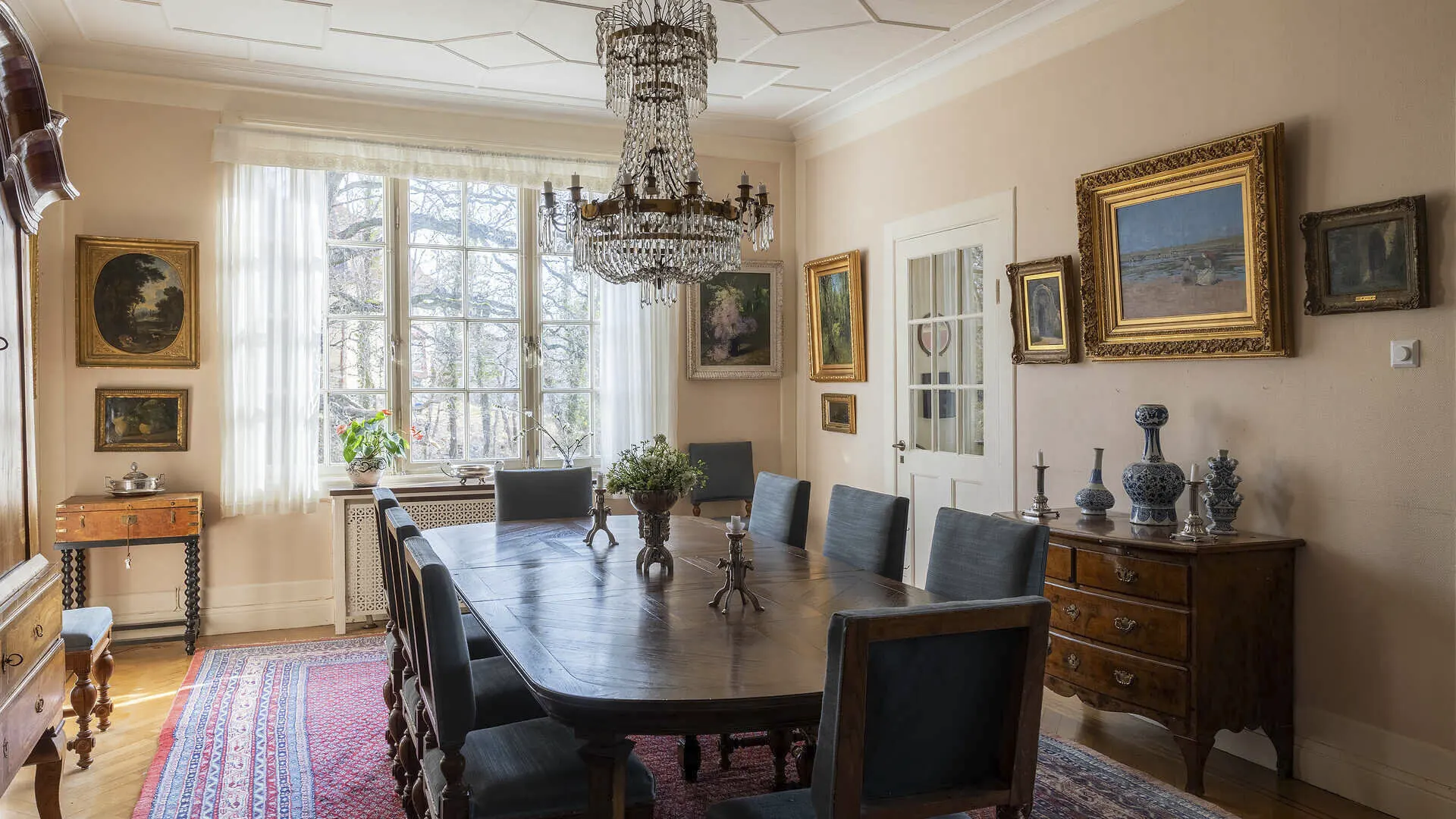
And this is what the dining room looks like. This room has not seen renovation for decades. It’s hard to imagine that people dined here in exactly the same decorations in the 1970s-1980s.
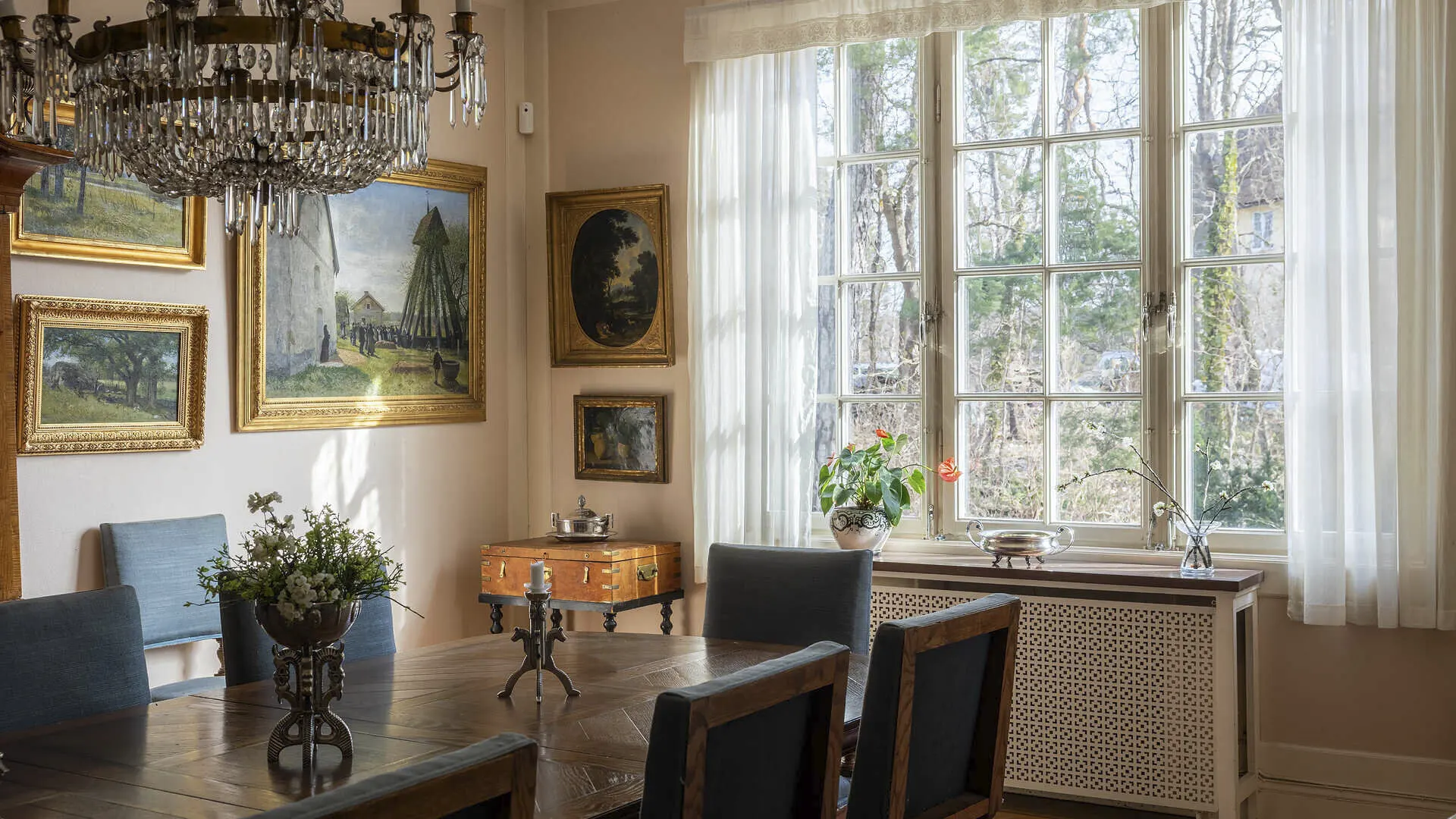
Paintings, like the vintage table with chairs, are passed down in the family of the current owners from generation to generation.
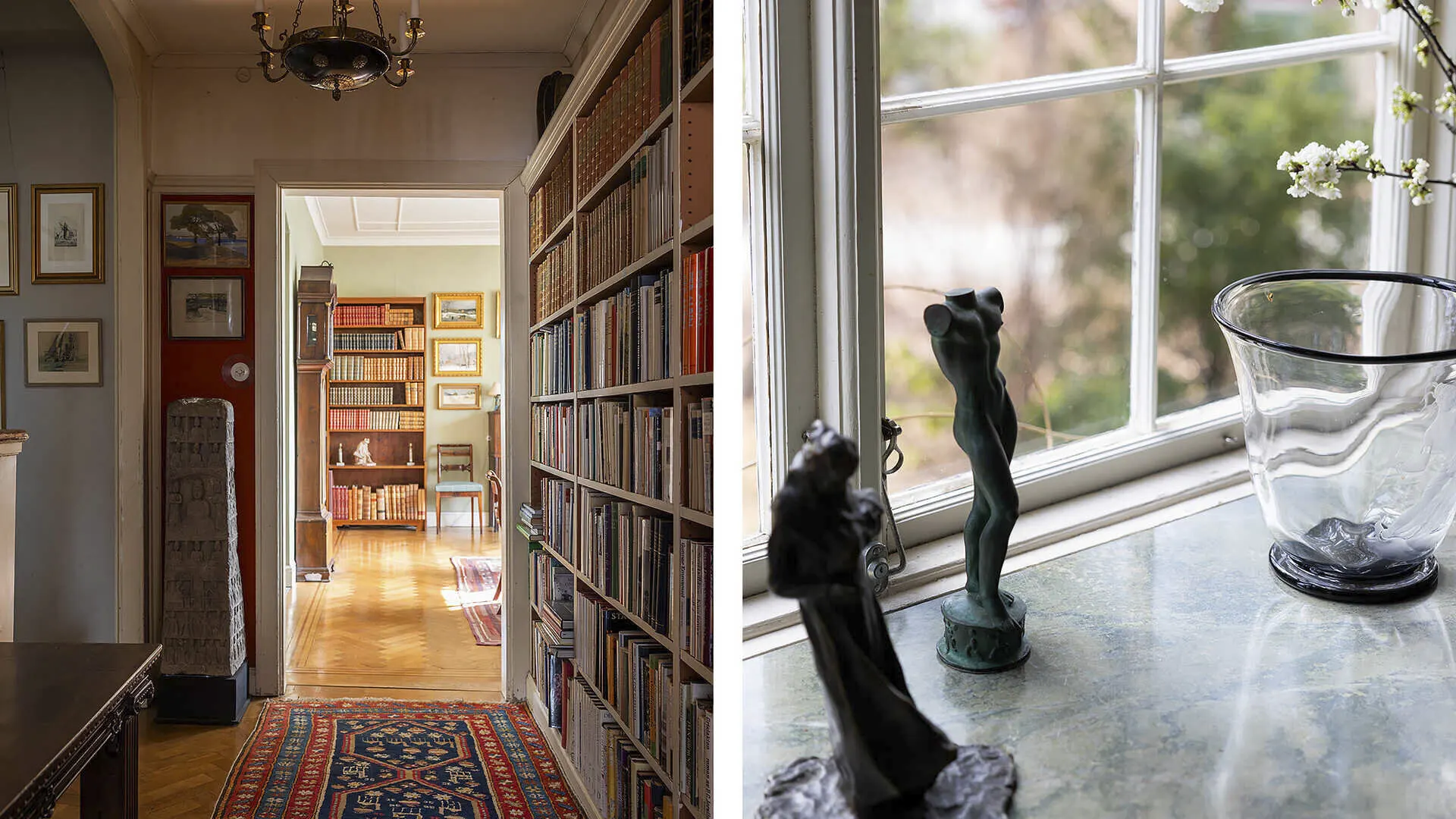
The house seems created for a quiet, unhurried life.
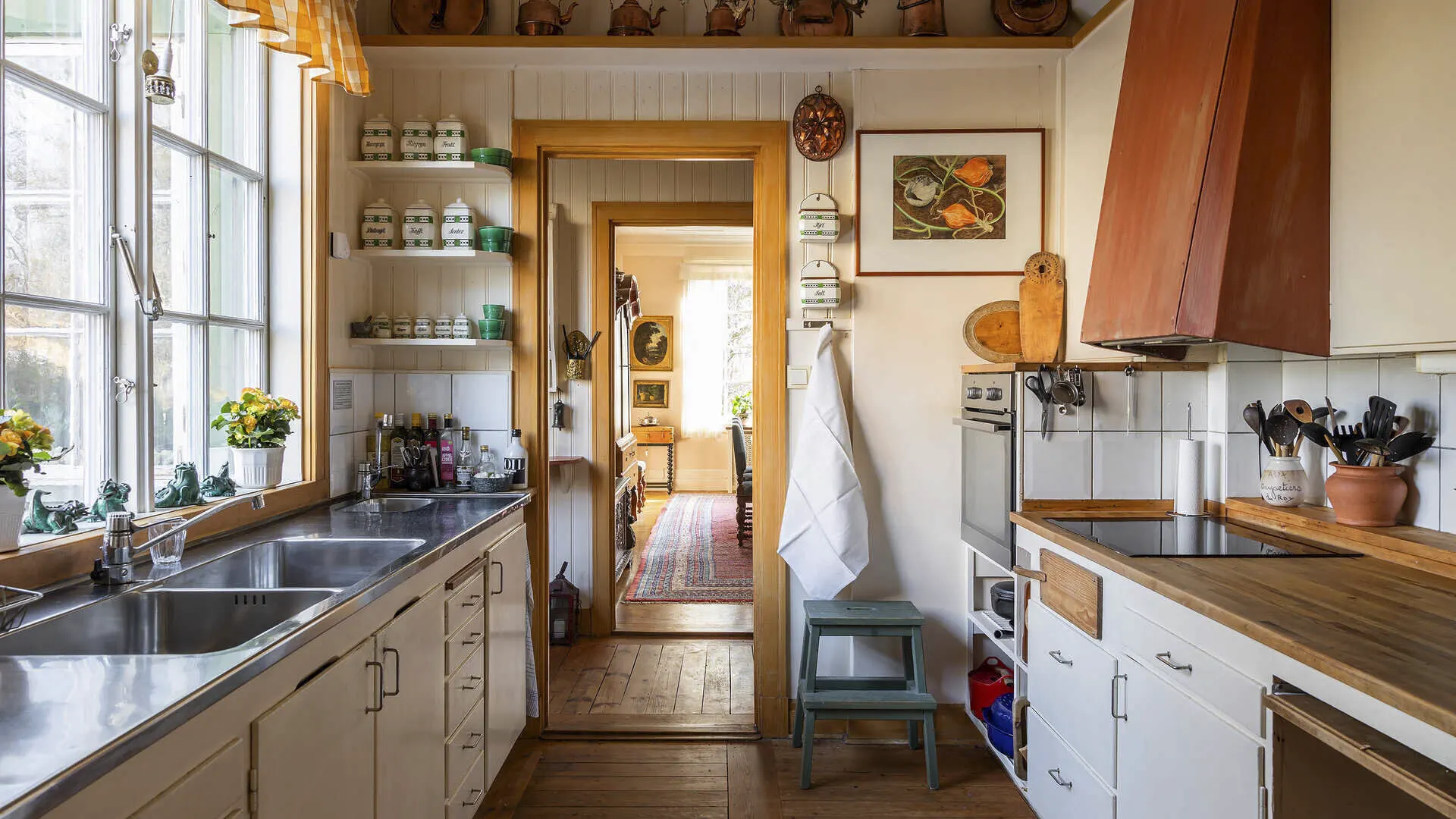
The kitchen is decorated in a classic Swedish style of the 1950s.
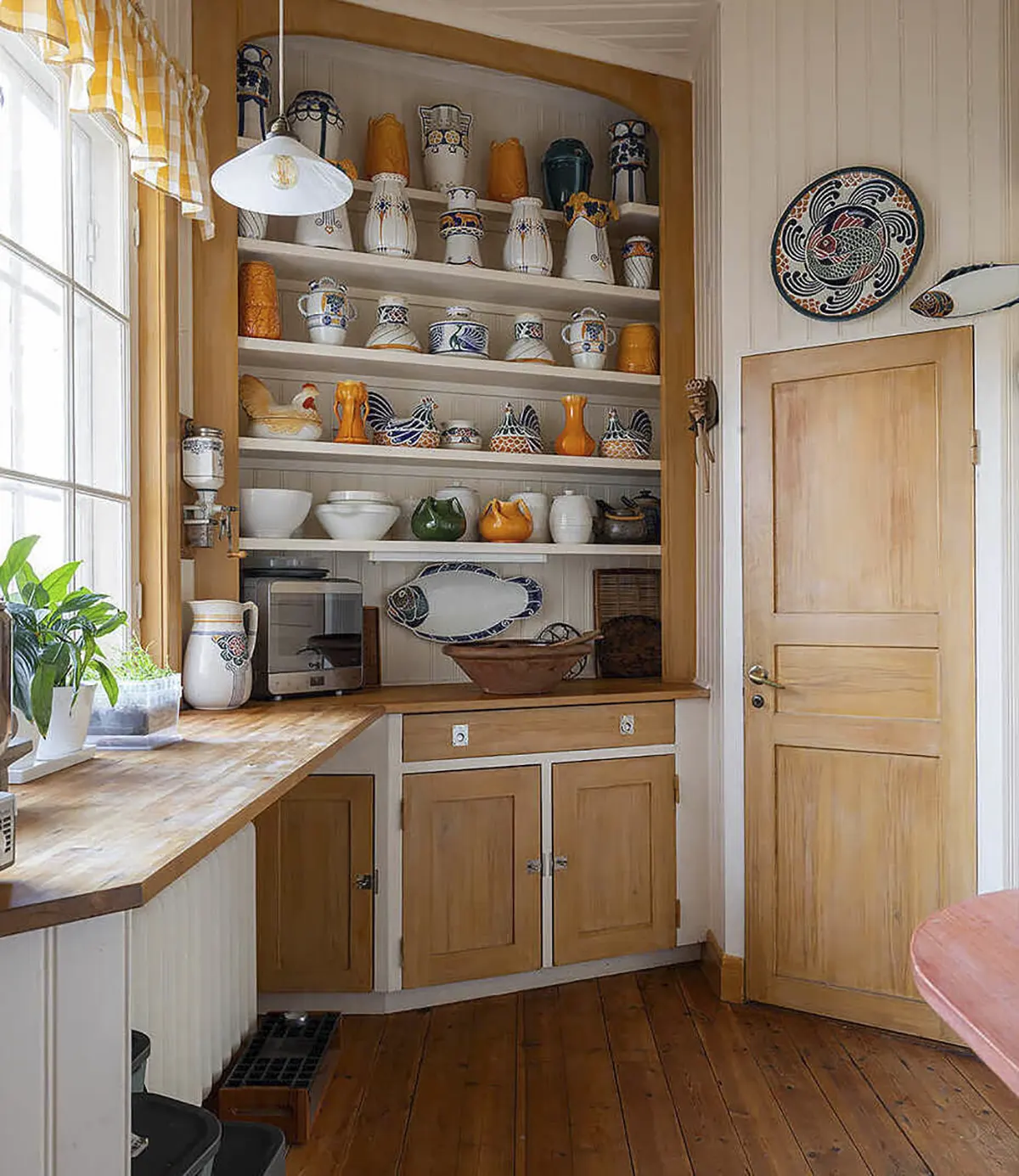
Previously, there was a small cupboard here for storing cereals and preserves, but the current owners (or rather, their great-grandfathers) made a shelving unit with open storage in its place.
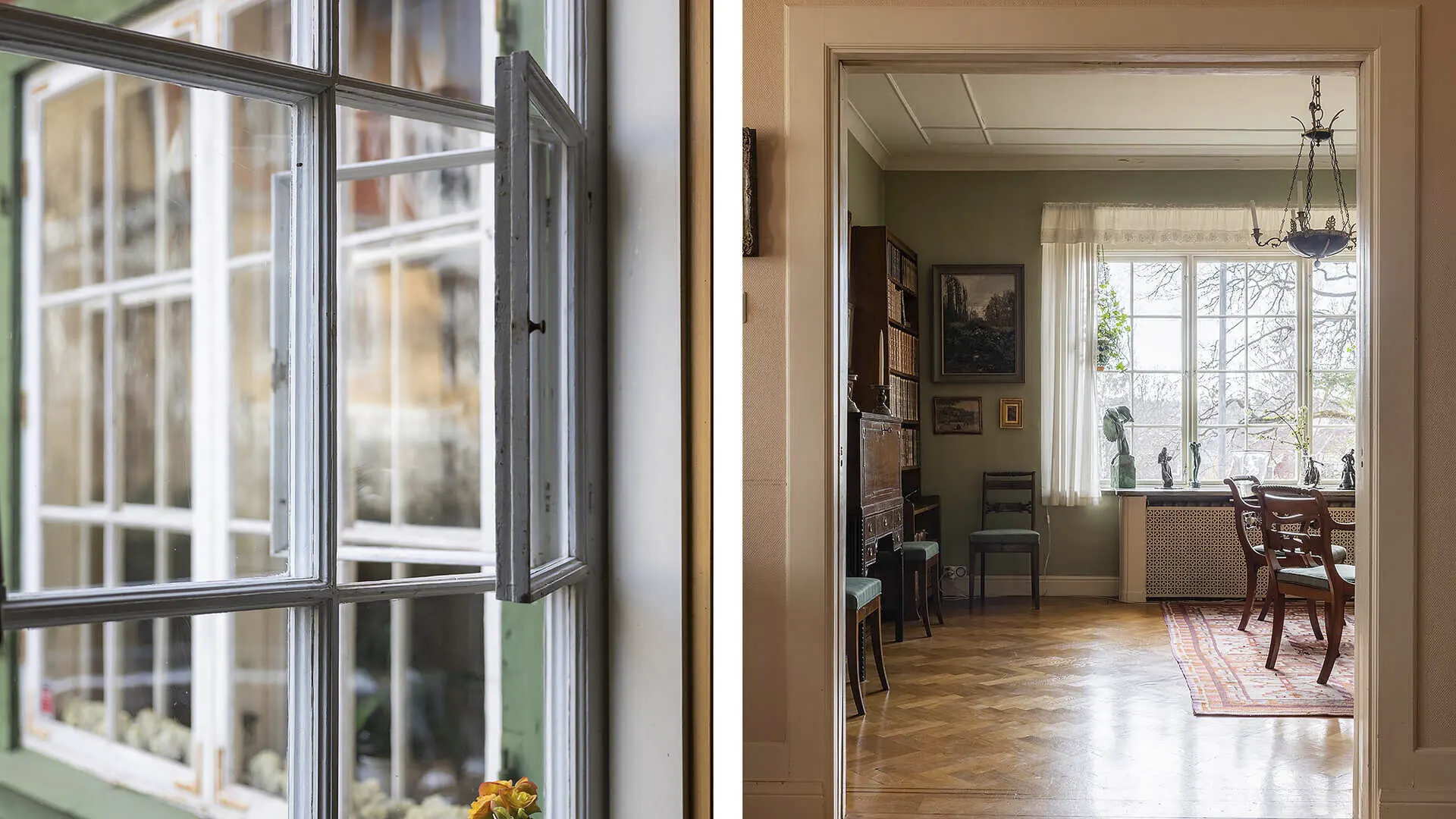
The windows are also original. They’ve been restored, but not replaced.
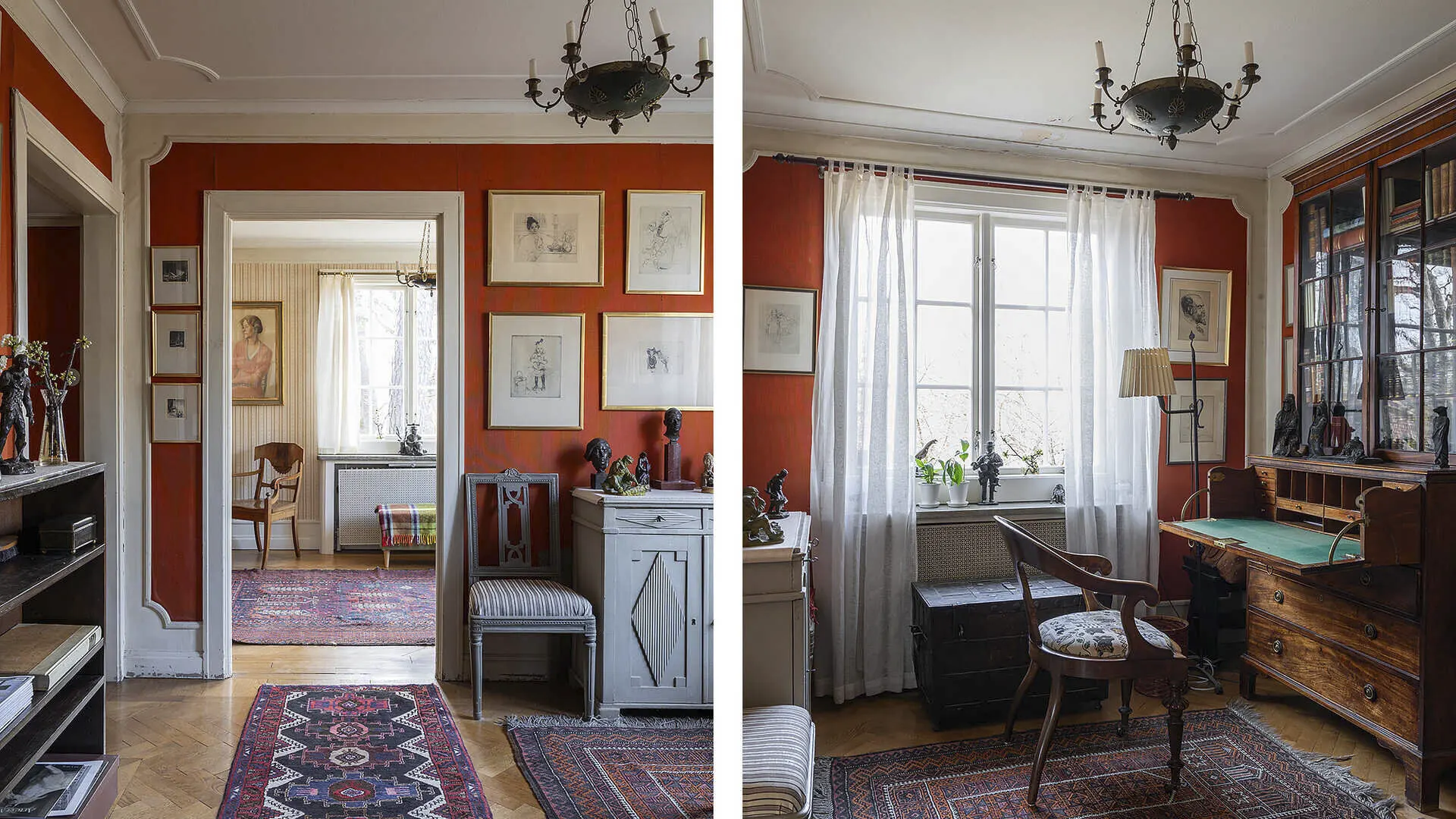
Right here, on the ground floor, is a study with an antique 18th-century desk. One likes to think that it was here that the first owner, Hesselman, drew his drawings with future discoveries.
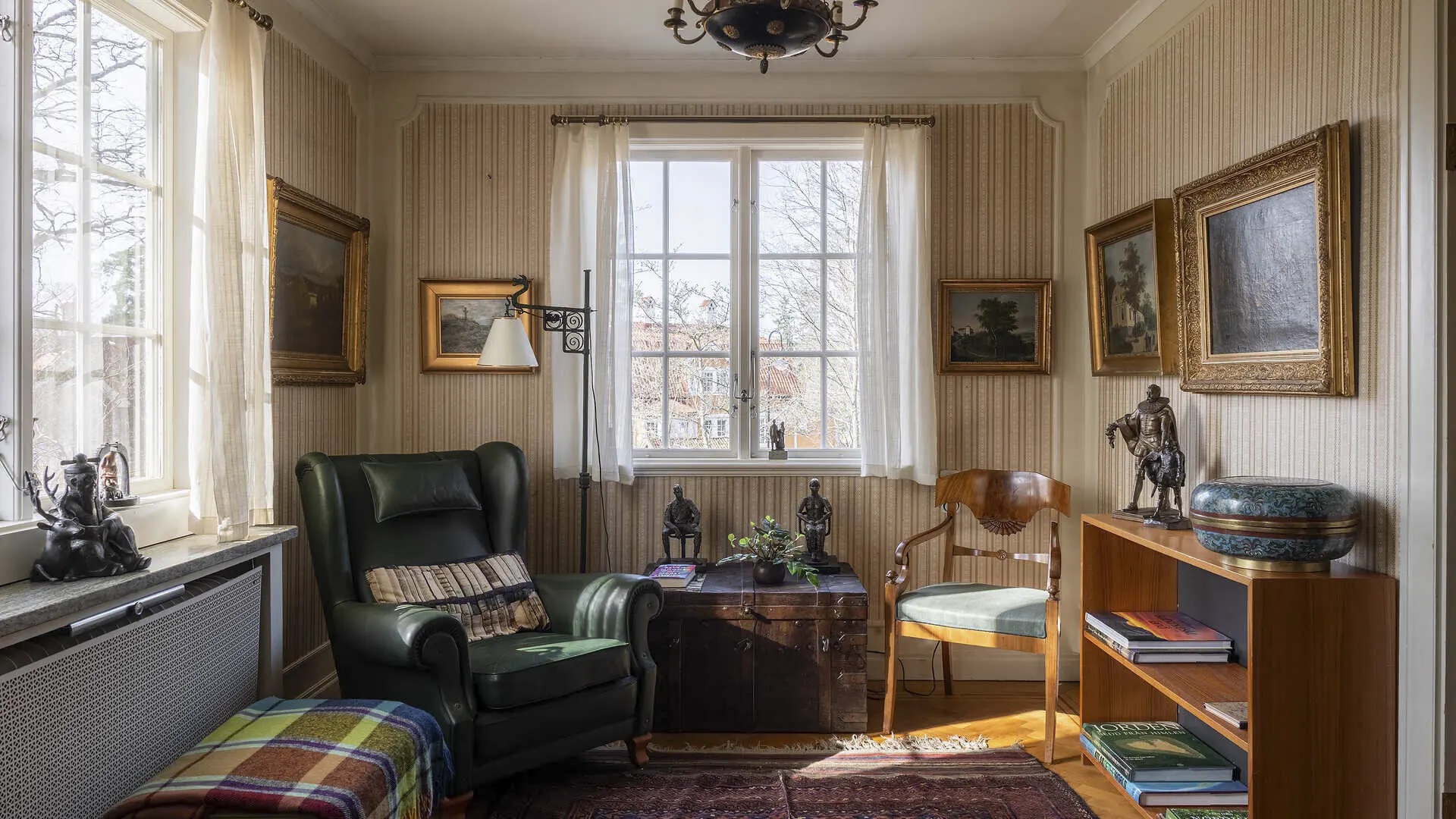
By the interior of the study, you wouldn’t guess that it’s now 2024. And it’s understandable—there have been no changes here for decades.
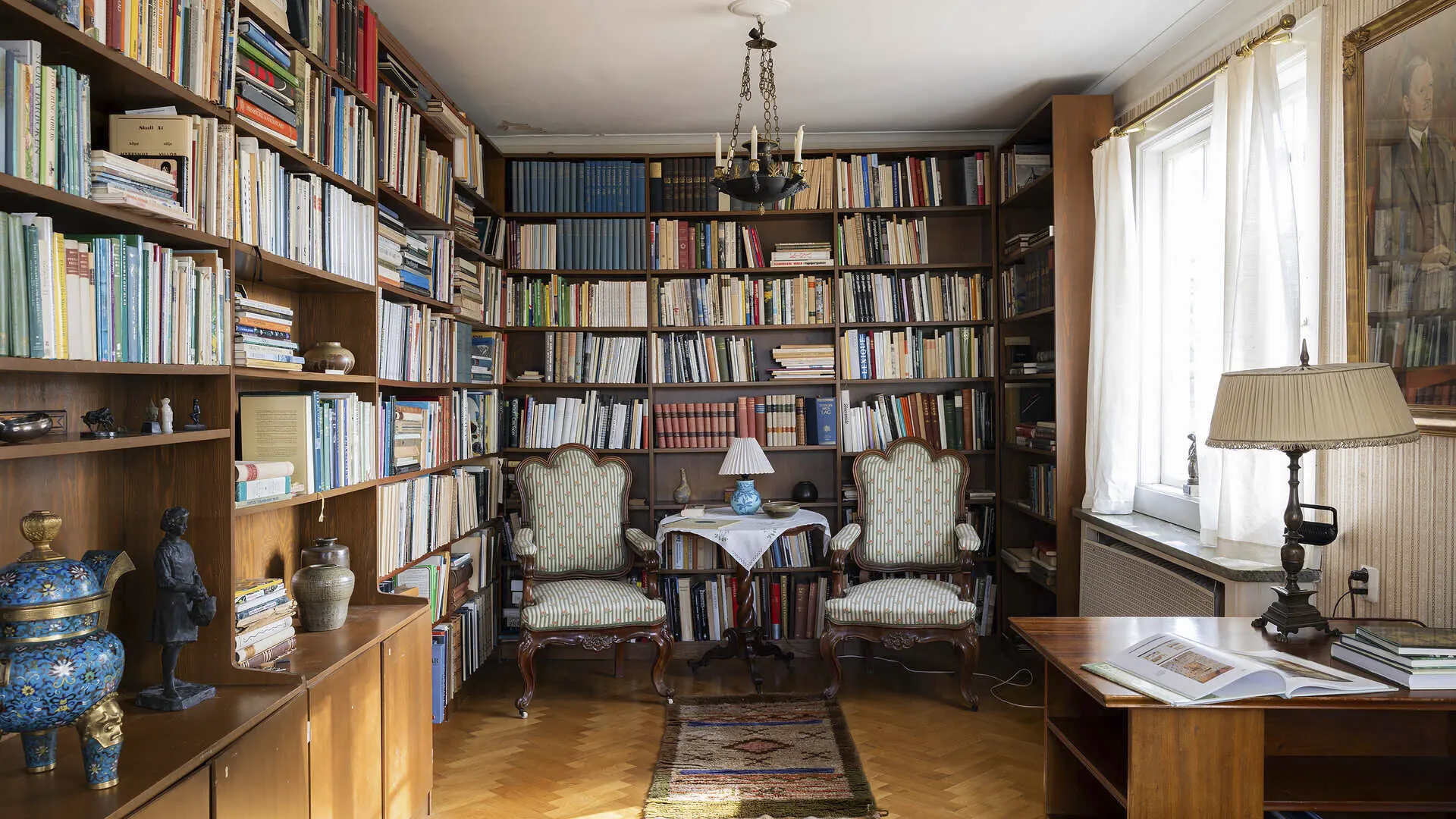
In the family library, only the most important and memorable books are kept.
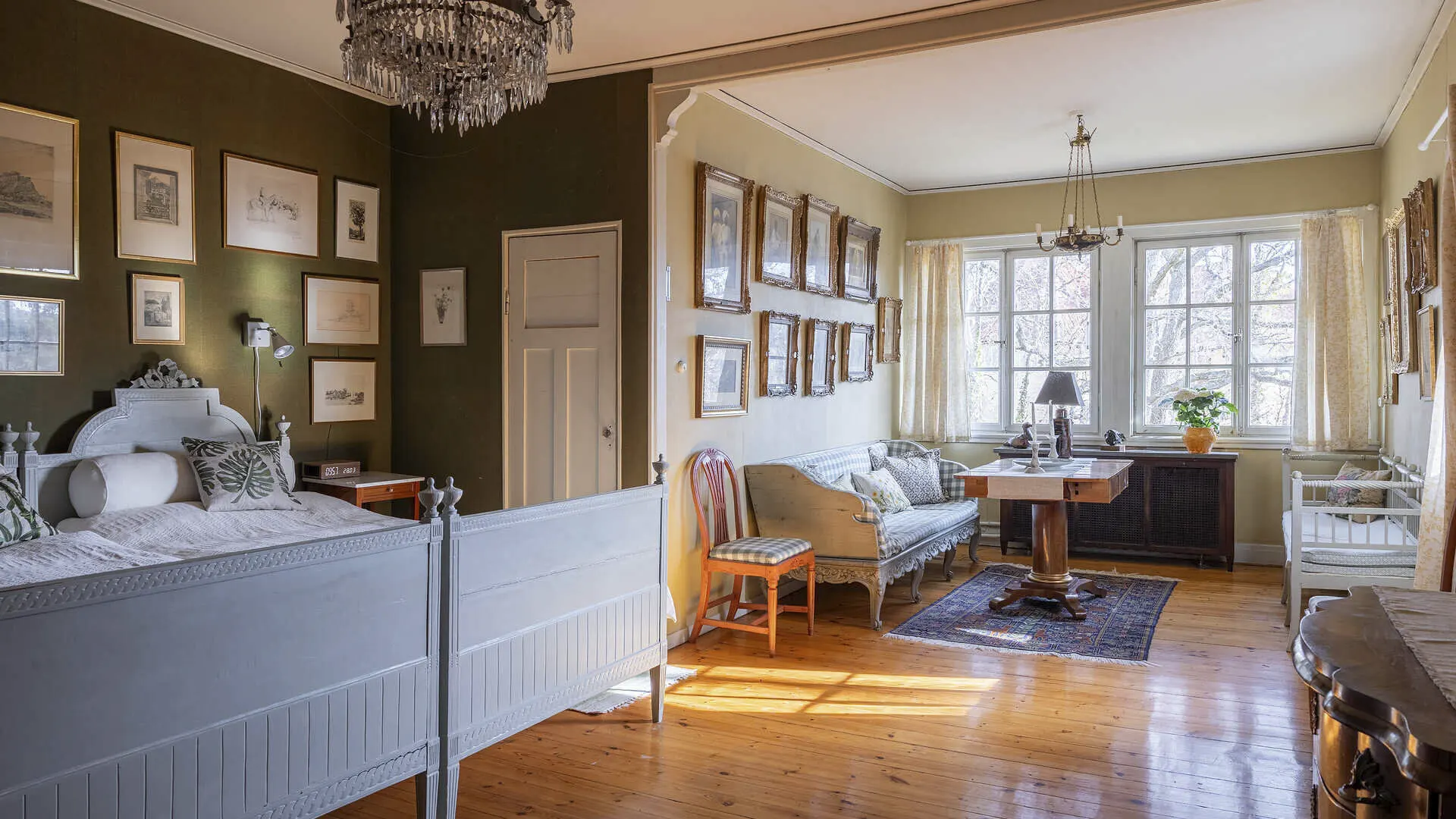
Let’s go upstairs. This is what the main bedroom looks like. Single beds are joined. There are a lot of paintings on the walls, as in the whole house.
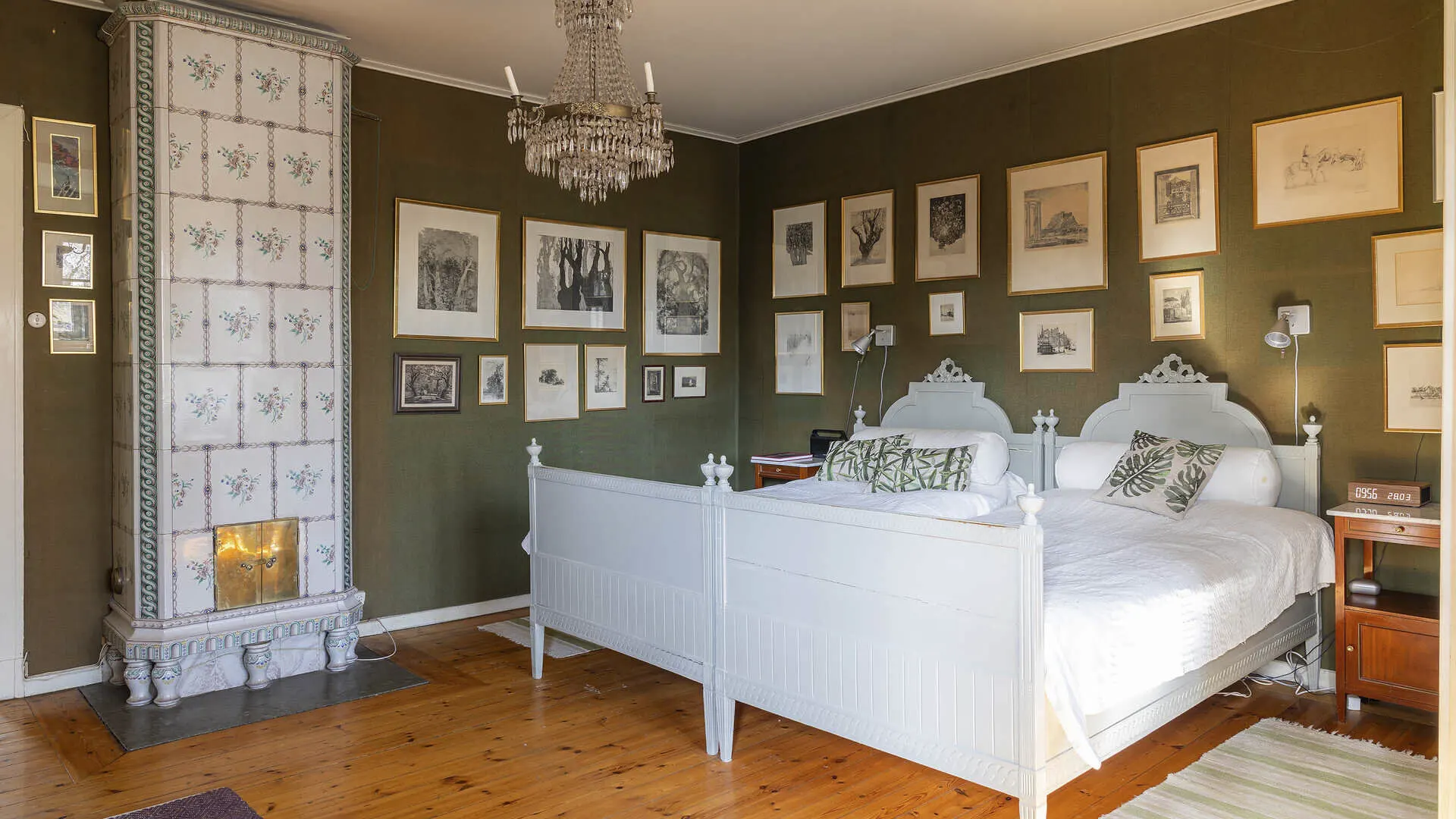
In my opinion, there are too many posters here.
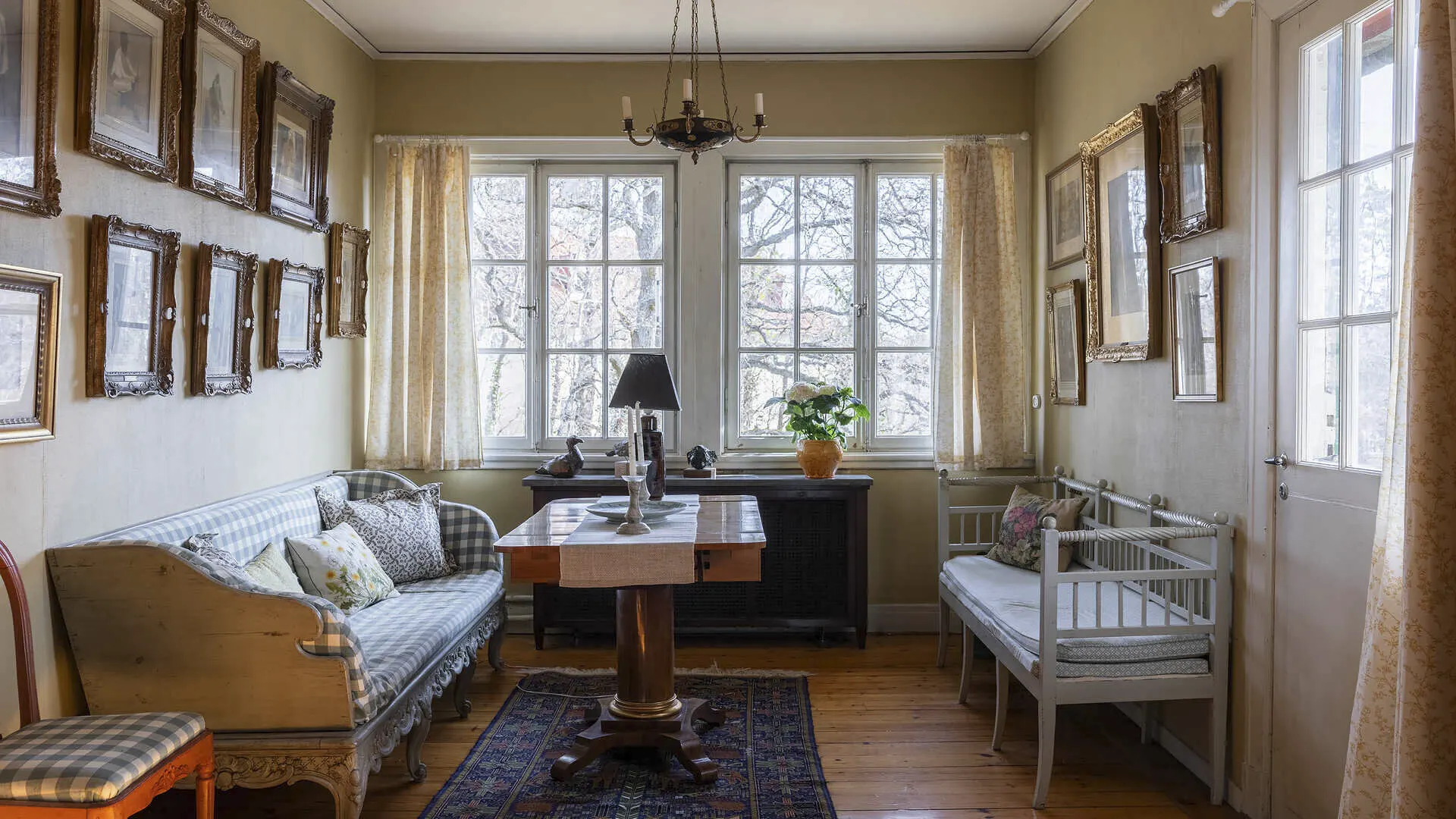
There’s an cozy corner in the bedroom. It’s the first time I’ve seen a designated area for relaxation in a bedroom. Although the idea is not bad—you can work on a laptop or have a glass of wine with your spouse before bed…
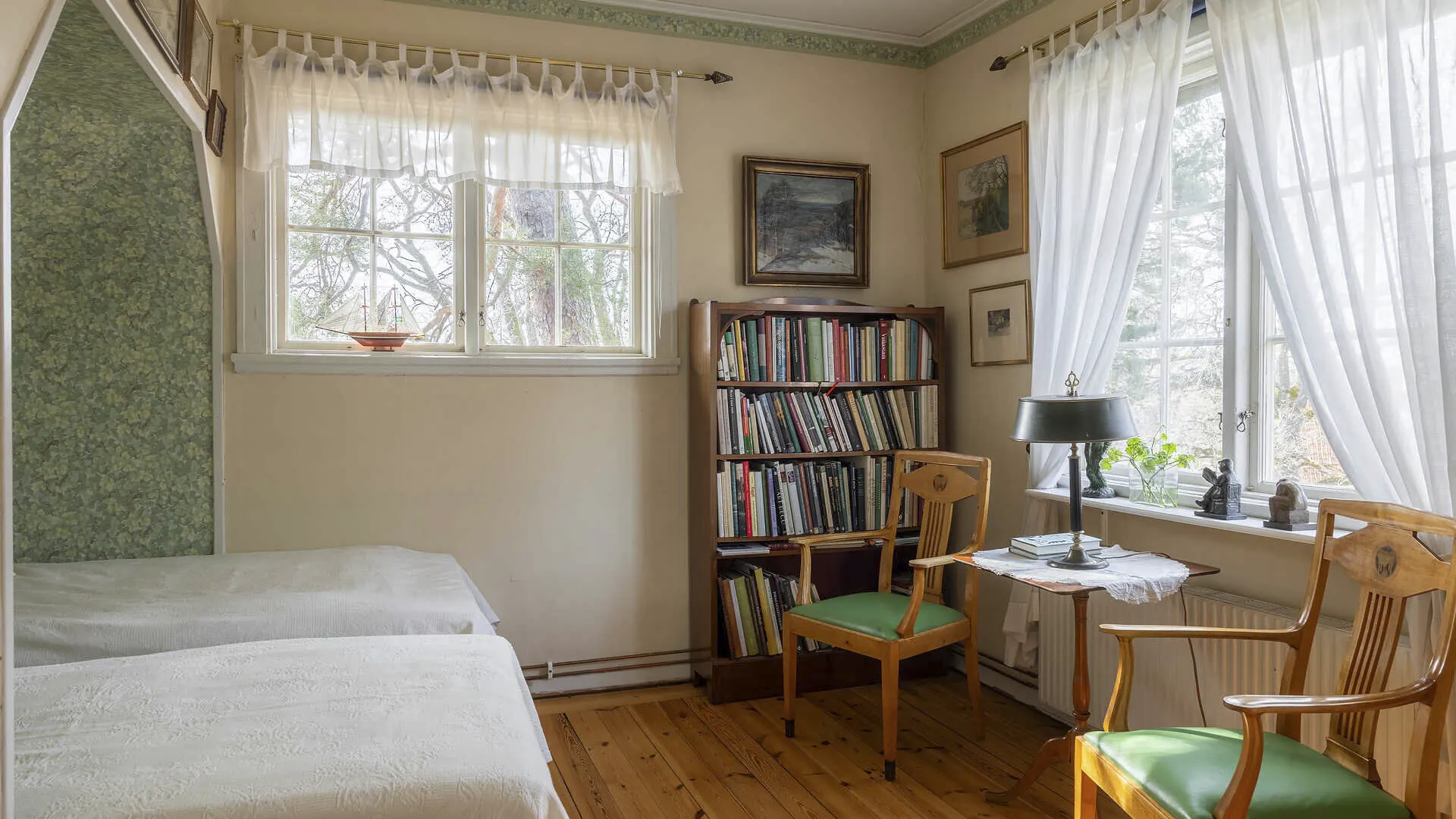
The children’s rooms (there are several) are a bit smaller. This is the room of twin girls.
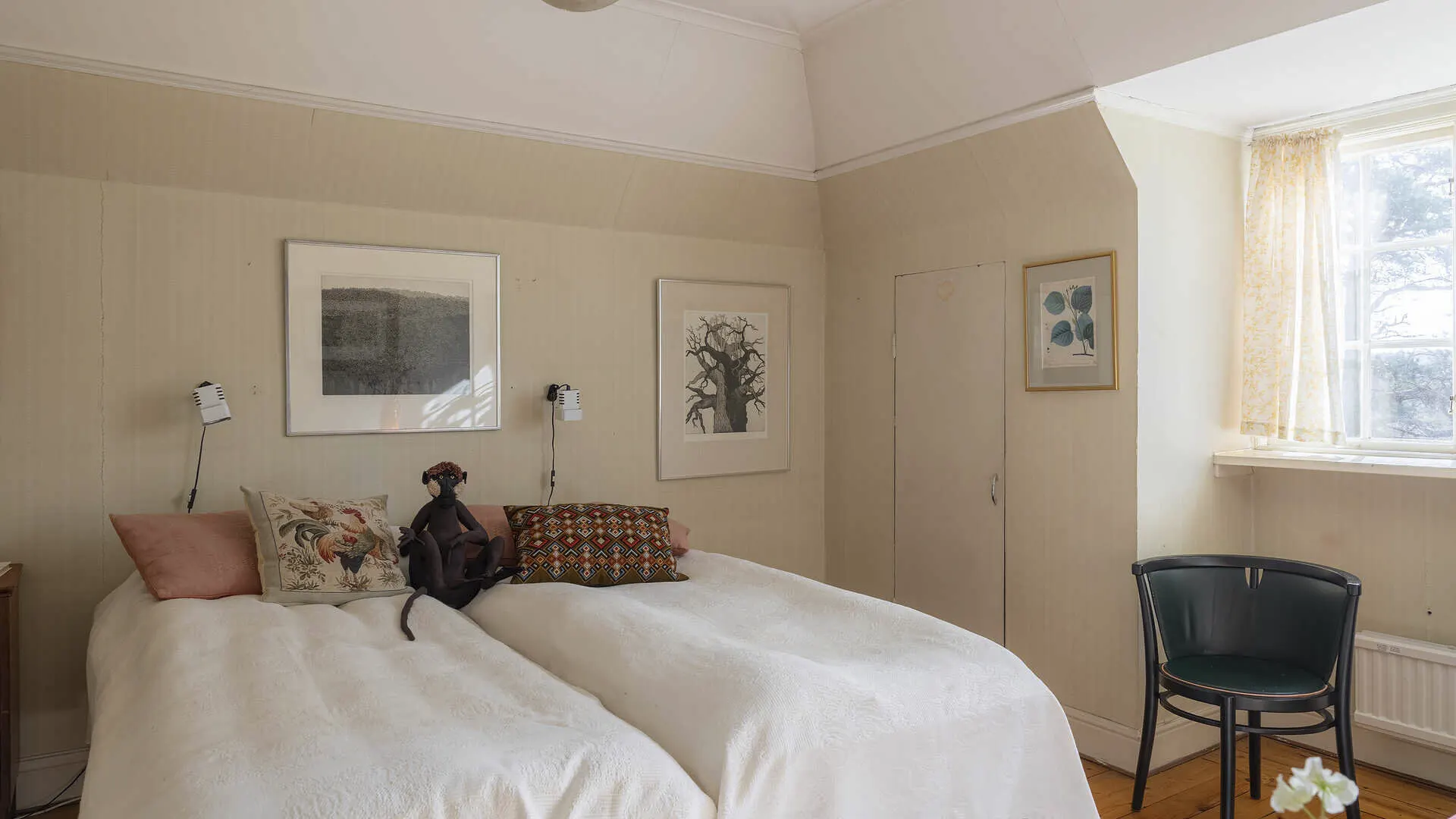
This is what the second children’s room looks like.
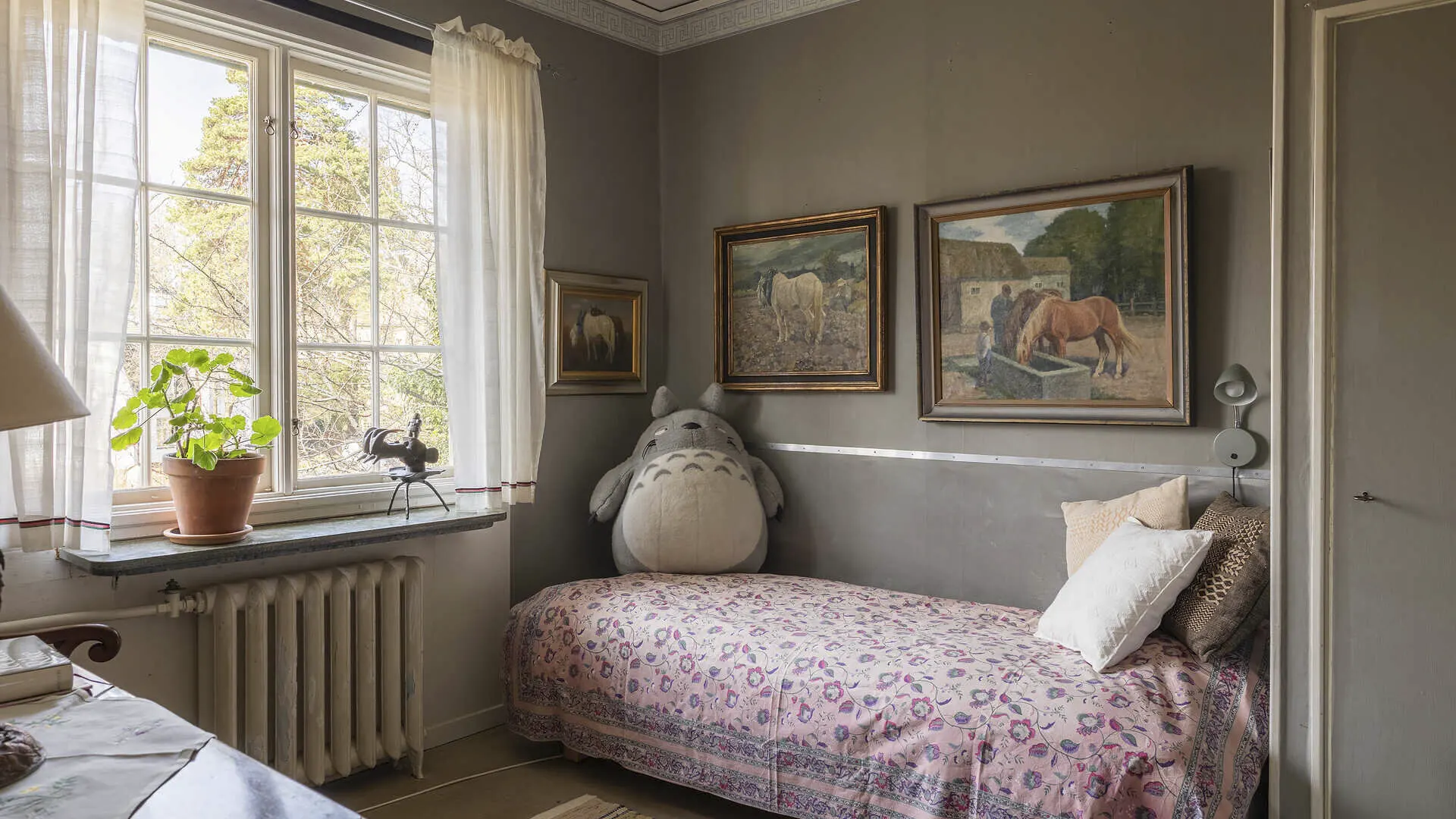
This is where the children study (they are homeschooled).
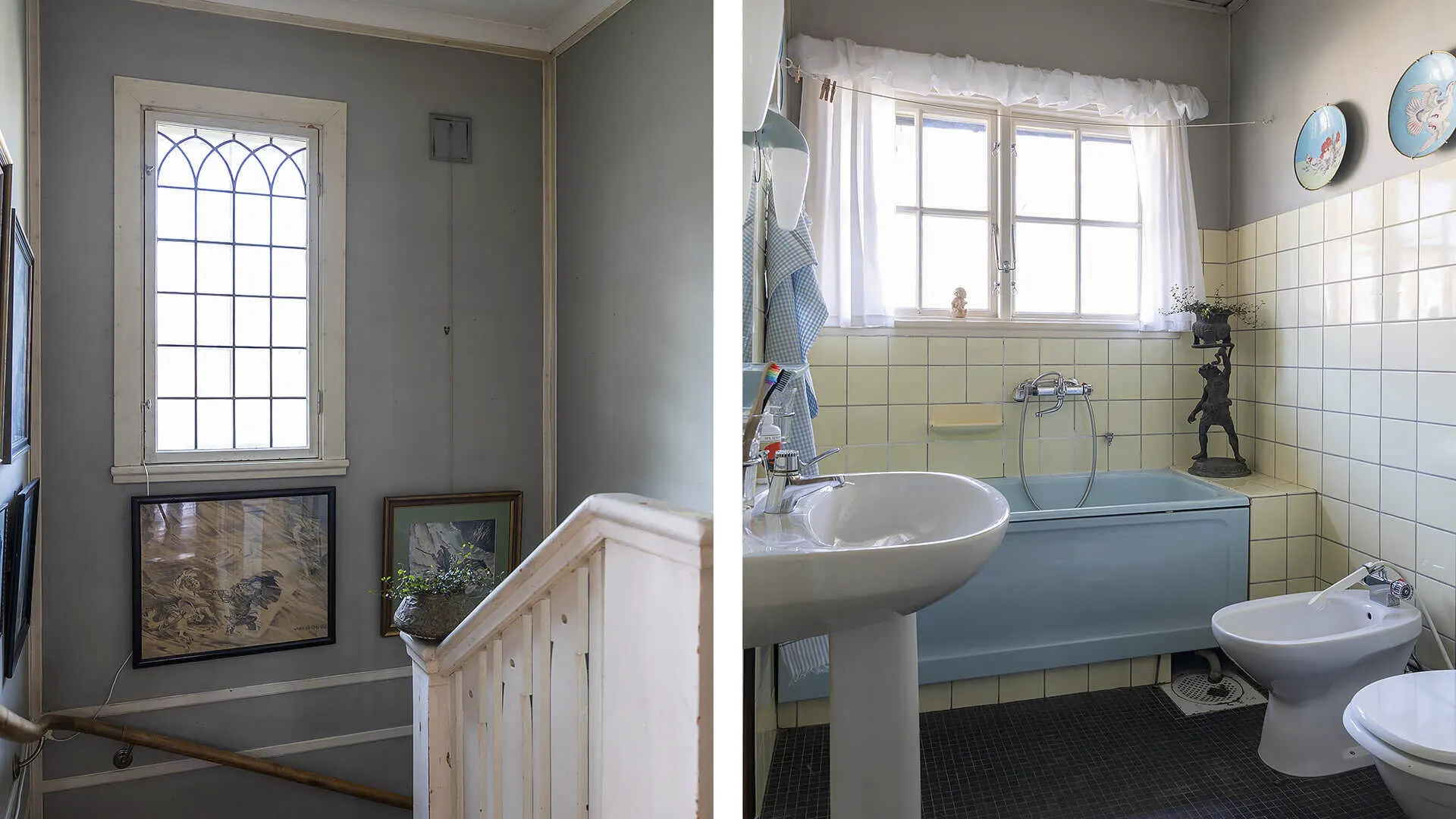
The bathroom on the second floor. Perhaps the most uncomfortable room in the house. It seems like a regular interior, but you get the feeling that you’ve stopped at some cheap roadside motel.
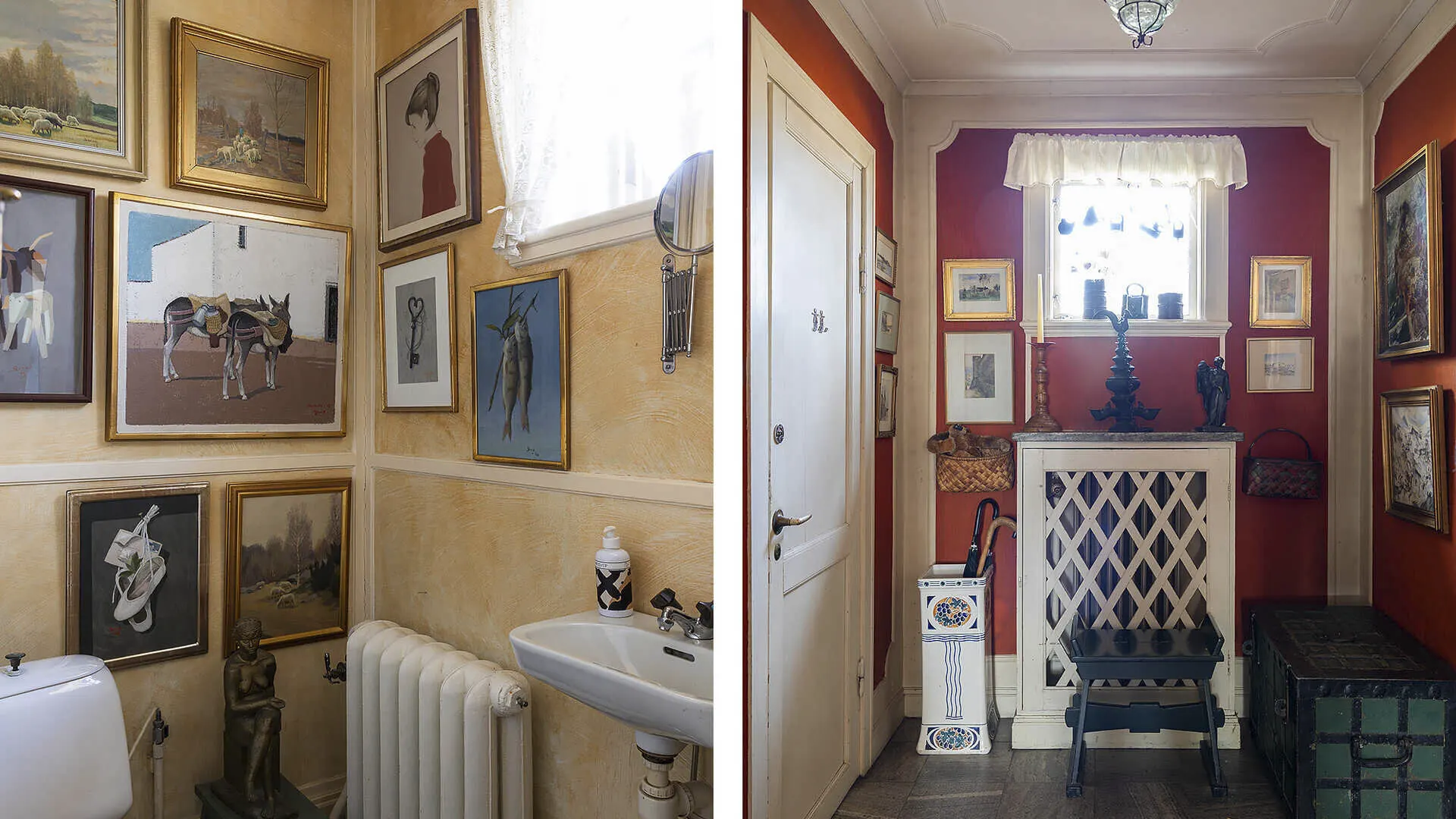
The guest toilet on the ground floor also looks very modest.
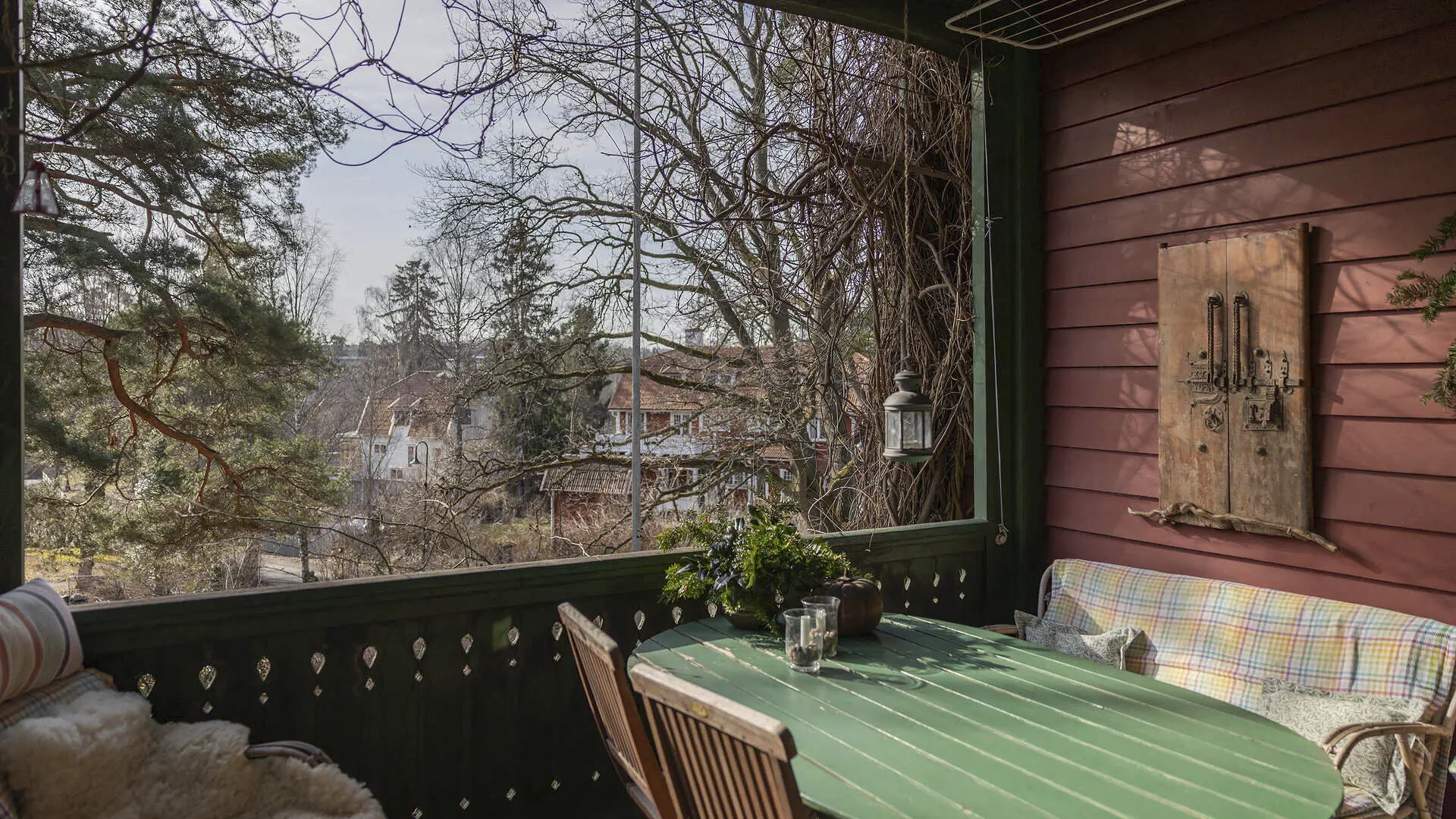
On the veranda, everything is done as simply as possible—a old table for outdoor gatherings, a bench covered with a piece of cloth…
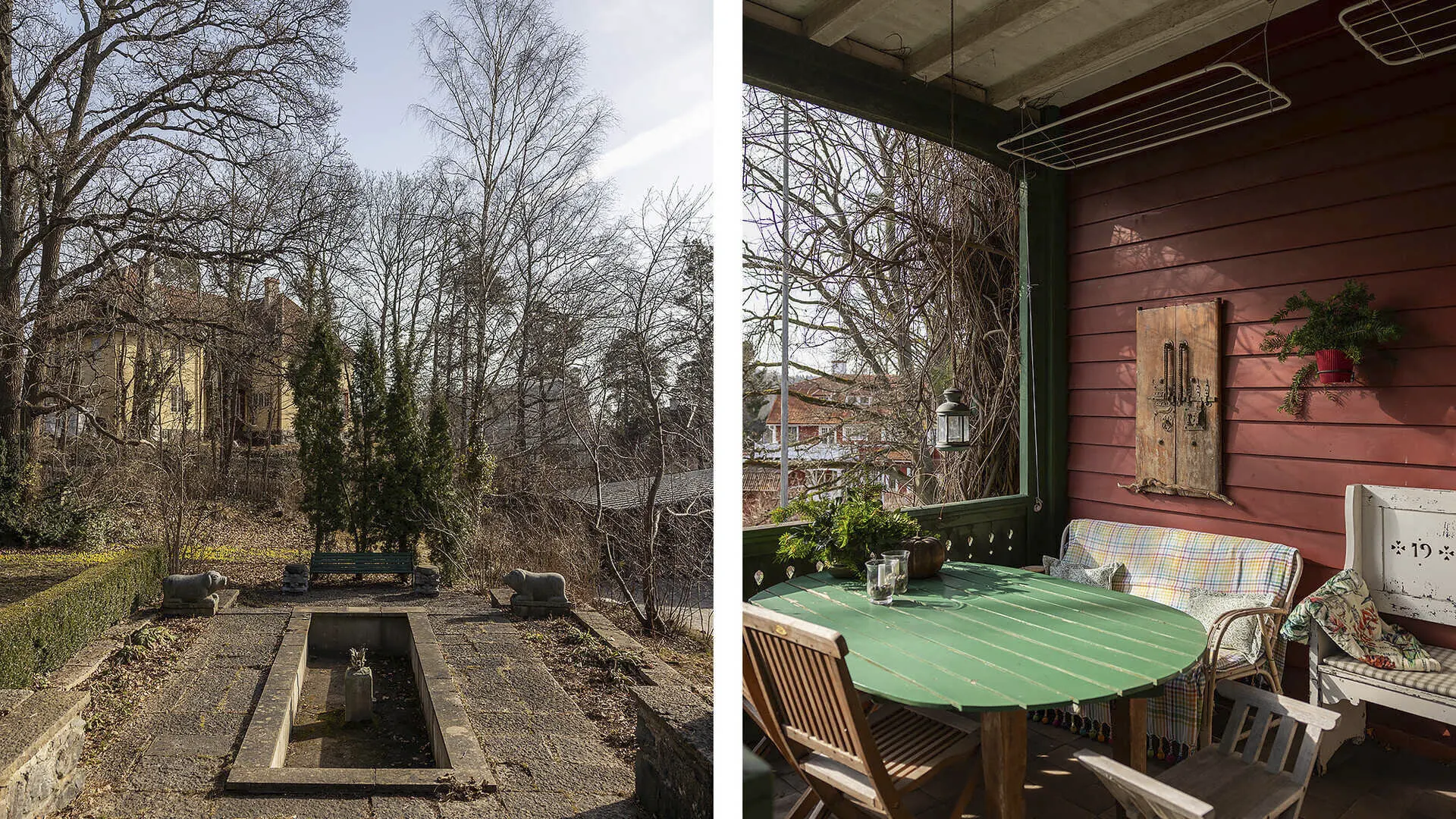
Next to the veranda is a fountain. In the summer, it works almost every day.
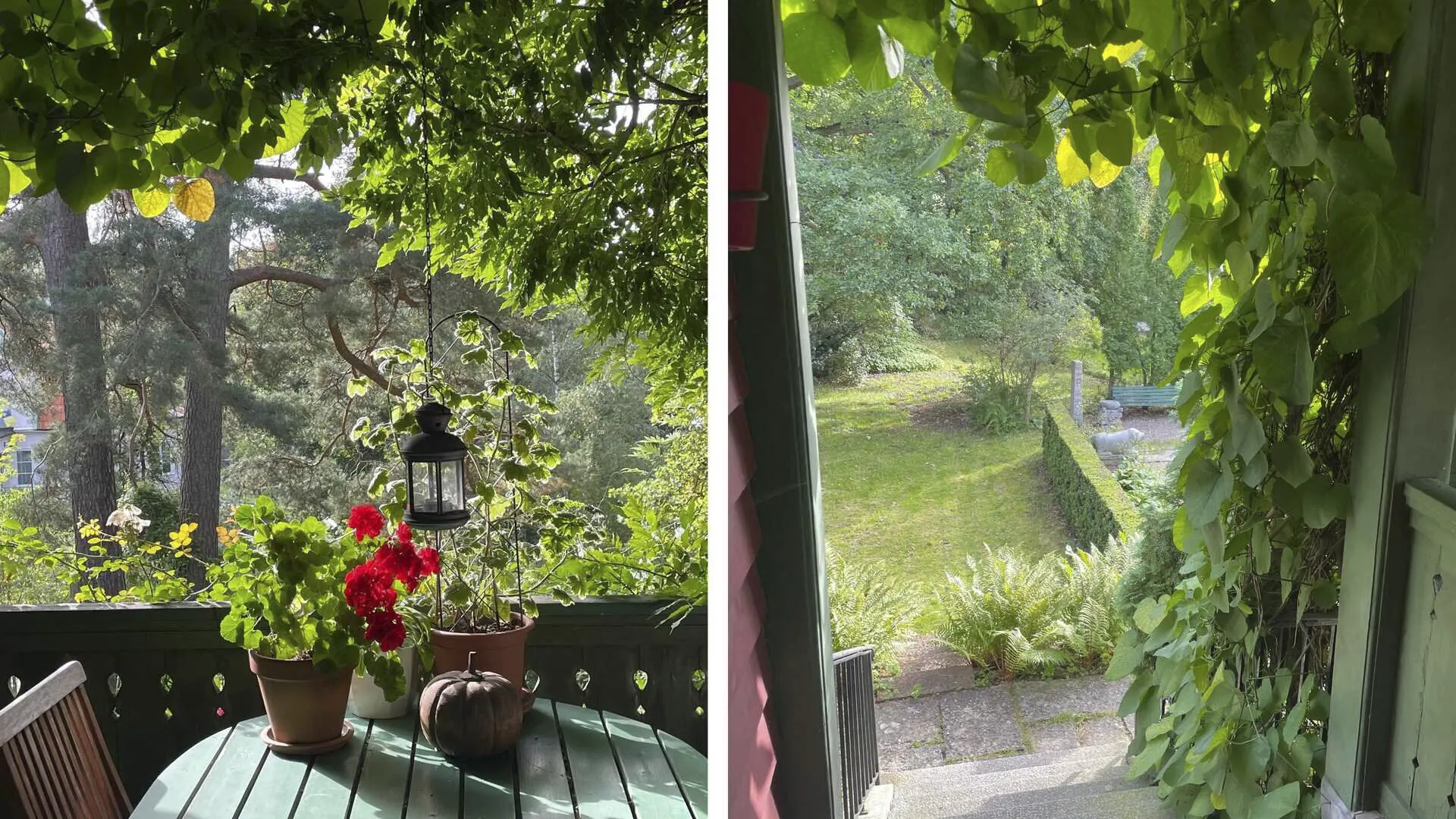
Summer is very nice here—bright, everywhere there’s greenery and flowers. But in autumn and winter, the landscapes, of course, are not so cheerful.
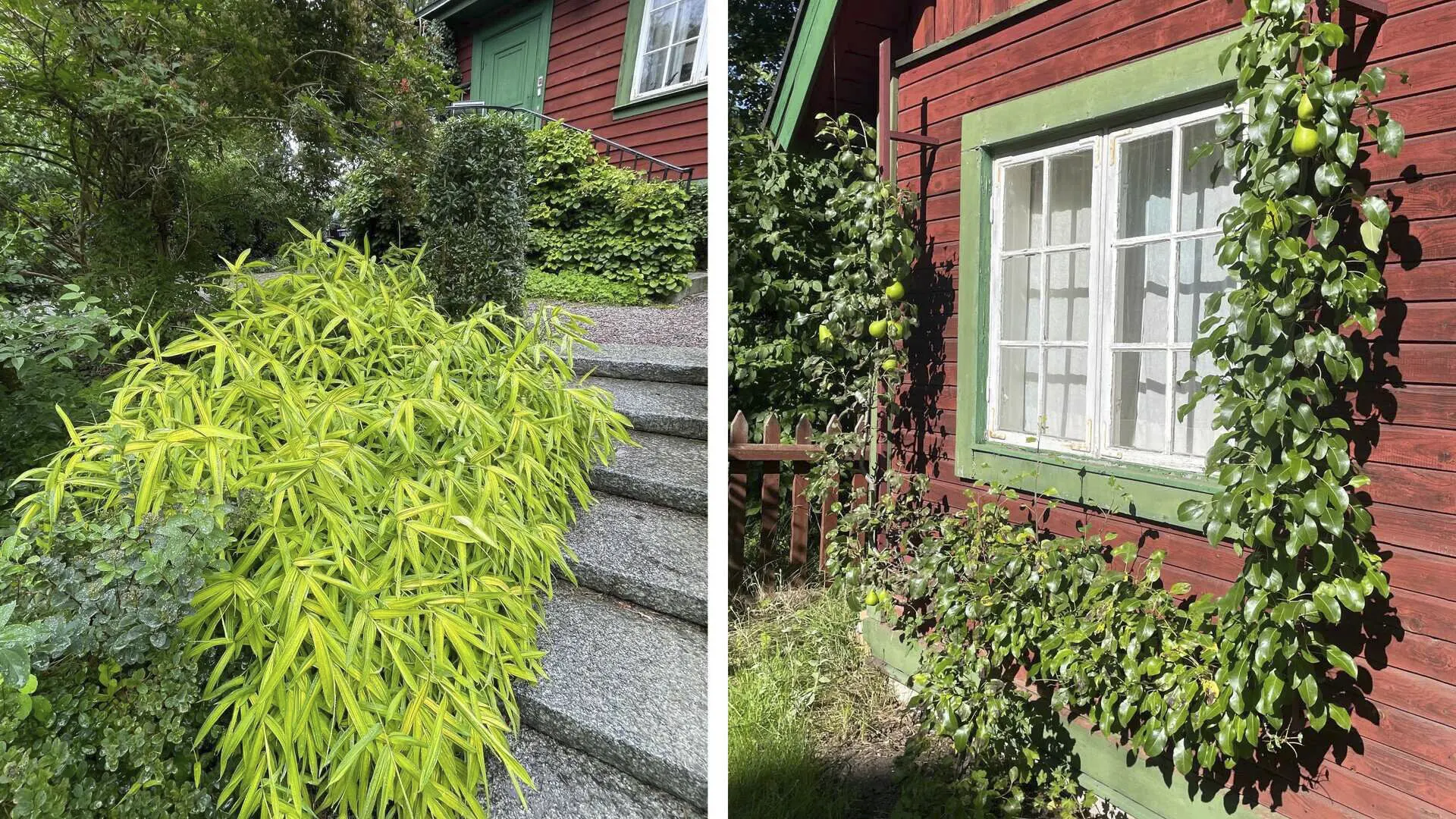
And this is what the house looks like from the outside.
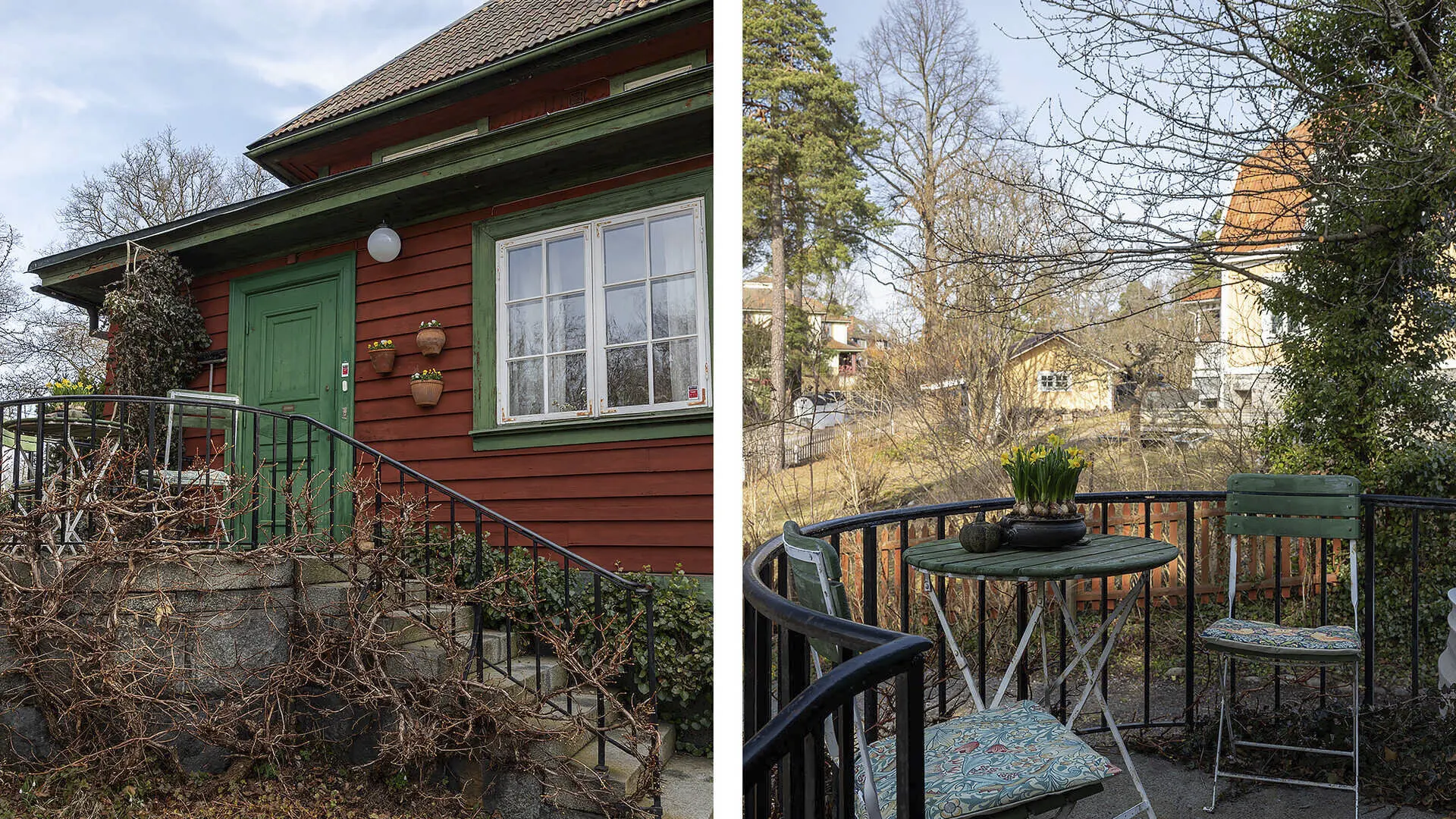
That concludes our tour of the family villa in the suburbs of Stockholm. Thanks for reading until the end!

